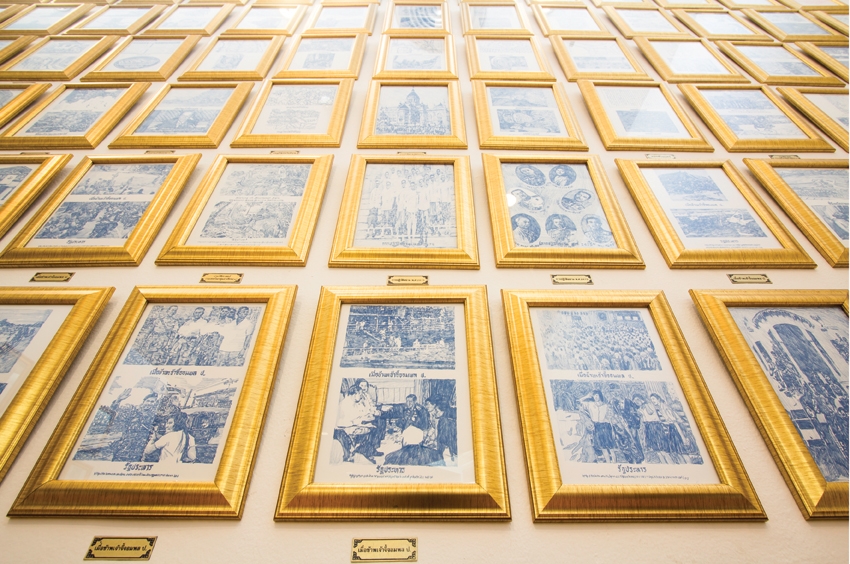Pisitakun Kuantalaeng’s practice is restless and expansive, subversively defying its handcrafted, unique qualities in order to bring the audience into a network of insights about the social life of images and the means by which art can accrue different values. Doubling and repetition are the artist’s key methods as he painstakingly transcribes found imagery, asking where the world ends and the strange realities of representation begin.
In The Unfinished History project, a long-term artwork begun in 2012, Pisitakun links drawings of official images from the political histories of different countries with related but more randomly selected images from the Internet and invites viewers to decide upon the connections and assert their own authority and experience. Art’s capacity to disrupt naturalised ideologies is further explored in We Need To Talk About Money (2012), where the value of the artist’s fabricated currency is equal to its declared cost and therefore refutes the possibility of a fluctuating economy according to the arbitrary attribution of value. In Useless Art-Exhibition: Ratchaburi Journey (2010), potential buyers were asked to purchase lots for a fixed price before knowing which artwork they would acquire: here Pisitakun played with taste and desire through the ‘risk’ that the artwork could provoke absolute disinterest from its new owner.
A graduate in sculpture from one of Thailand’s more experimental art colleges, King Mongkut’s Institute of Technology Ladkrabang, the young artist has completed residencies in Japan and South Korea and exhibits regularly, most recently in the epic Concept Context Contestation: Art and the Collective in Southeast Asia at the Bangkok Art and Culture Centre during 2014. As Thai history currently unfolds under martial law following the military coup d’état on 22 May 2014 – the thirteenth since the end of the absolute monarchy in 1932 – Pisitakun’s practice represents a decisive break from many of his Thai peers: he questions fundamental and increasingly universal values without merely decrying the fact of corruption or offering neat palliatives.
Originally published in the Autumn & Winter 2014 issue of ArtReview Asia, in association with EFG International.
